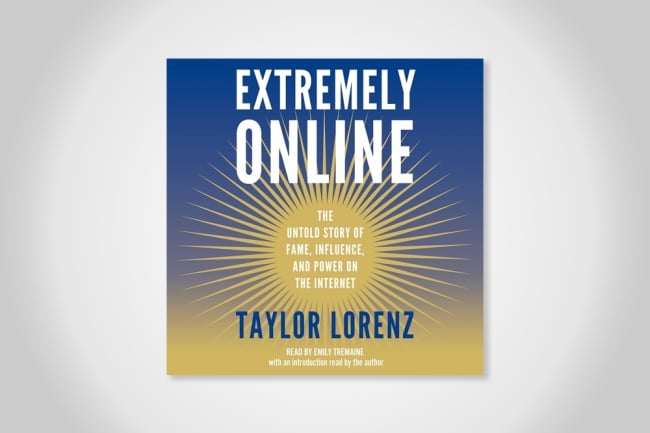You have /5 articles left.
Sign up for a free account or log in.

Simon & Schuster
Extremely Online: The Untold Story of Fame, Influence, and Power on the Internet by Taylor Lorenz
Published in October 2023
How can it be that I am so immersed in the world of online learning while being mostly ignorant of social media?
That is the question I kept asking myself as I listened to Taylor Lorenz’s Extremely Online. Lorenz, a columnist for The Washington Post and previously a reporter for The New York Times, has written a “social history of social media.”
Most of that history I didn’t know. My introduction to the business history and culture of social media came through Ben Smith’s excellent 2023 book, Traffic: Genius, Rivalry, and Delusion in the Billion-Dollar Race to Go Viral. (See my review.)
As someone who has spent almost an entire career in online learning, it is illuminating that education receives zero mentions in Extremely Online. The timelines of social media and online learning platforms closely line up, yet there seems to be no cross-pollination between their parallel evolutions.
In Extremely Online, Lorenz helpfully tells the social media story chronologically, beginning at Six Degrees (founded in 1997) and ending at TikTok (founded in 2017). The book focuses less on the business of social media platforms (although some of that history is shared) and more on the impact of the platforms on media culture. These are stories of creators, influencers, big tech and legacy media.
What connections might be drawn between the history of social media and online learning platforms? To start to think about that question, I created a table that places the founding of companies/platforms together by year. (Please let me know what I’m missing).
| Online Learning Platforms (Year Founded) | Social Media Platforms (Year Founded) | |
| 1996 | eCollege | |
| 1997 | CourseInfo, WebCT | Six Degrees |
| 1999 | Blogger | |
| 2000 | Angel | |
| 2001 | MIT OpenCourseWare | |
| 2002 | Moodle | Friendster, MySpace, LinkedIn |
| 2003 | Second Life | Typepad, WordPress, Skype |
| 2004 | Sakai | Facebook, Flickr |
| 2005 | Chegg, Quizlet | YouTube, Reddit |
| 2006 | Khan Academy, Course Hero | |
| 2007 | Tumblr | |
| 2008 | Instructure (Canvas), Knewton, 2U | |
| 2009 | ||
| 2010 | Udemy, Eruditus | Instagram, Pinterest |
| 2011 | OpenClass, Udacity, MITx, Everspring, Duolingo | Snapchat, Google+, Twitch, WeChat |
| 2012 | Coursera, edX, FutureLearn, iTunesU, AllCampus | Zoom |
| 2013 | Vine | |
| 2014 | Google Classroom | |
| 2015 | Guild, MasterClass | |
| 2017 | TikTok |
Three conclusions are apparent in looking at this side-by-side timeline of online learning and social media history. First, there has been considerable churn in both domains since 1996. Many of the online learning and social media companies/platforms are no longer in existence. They were acquired and their brands subsumed, or they died on their own.
Second, it seems as if the inflection points for social media have come more recently than for online learning. TikTok is maybe as big a game-changer as the 2012 scaled online learning platform launches of Coursera and edX. Have we had any really big news in online learning since 2012? (Generative AI doesn’t count for online learning. At least not yet).
Finally, it is unclear from the table above how much impact the online learning companies have had (or are having) on the broader postsecondary ecosystem. A small minority of degree programs are currently done in collaboration with a for-profit company.
The edtech sector has not changed much about universities’ composition, practices or operations.
This conclusion about the impact of edtech on the university ecosystem mirrors the story social media story told in Extremely Online. Creators and influencers have proliferated, but the media and news businesses remain dominated by large incumbents.
As my interest in influencers is limited, the principal value I received from listening to Extremely Online was to think about the confluence (or lack thereof) between the social media and edtech ecosystems.
Extremely Online is a pretty good book about social media culture. I want someone to write a book about edtech culture.
What are you reading?








